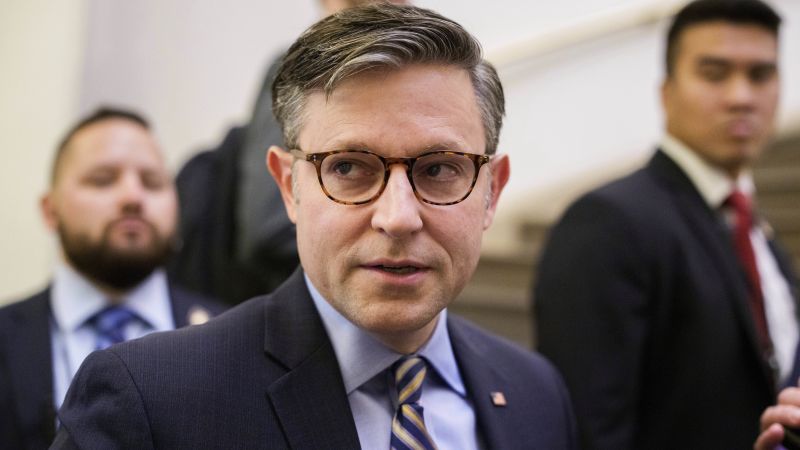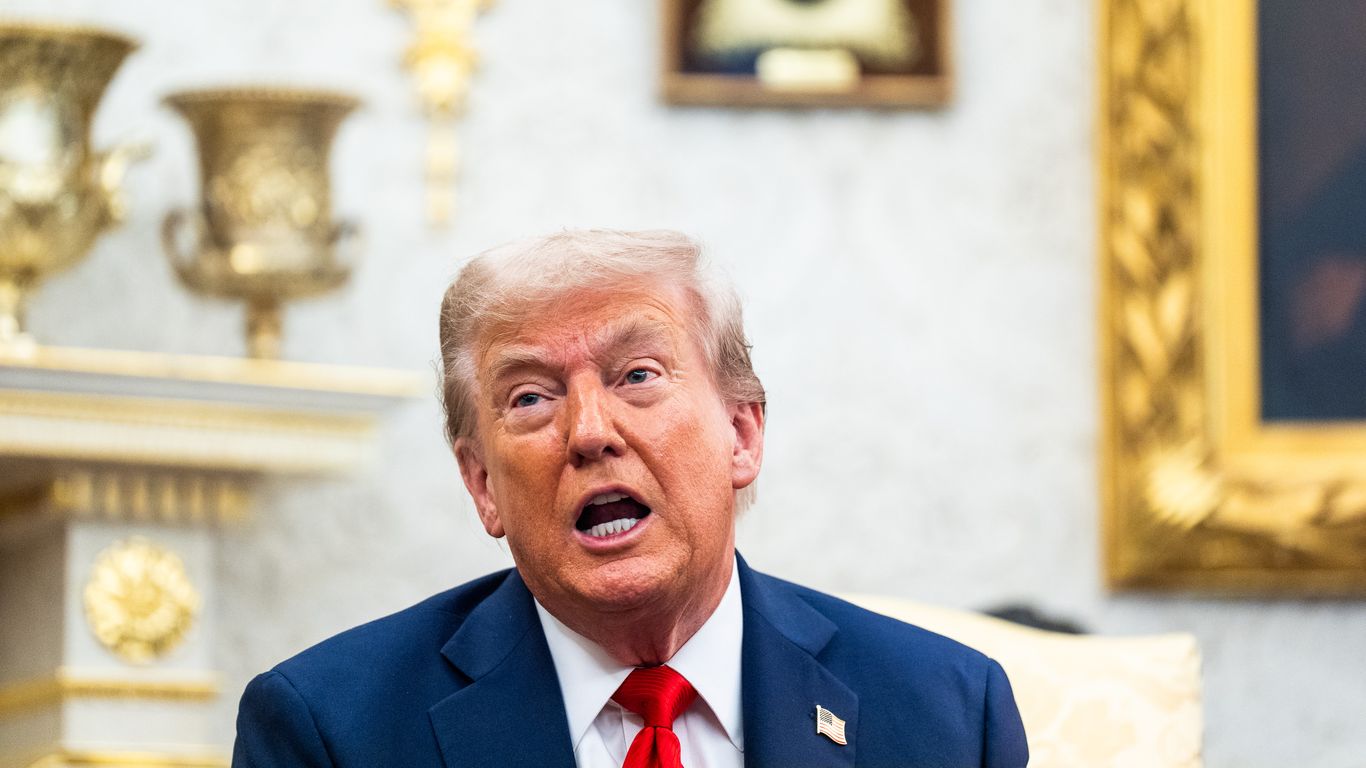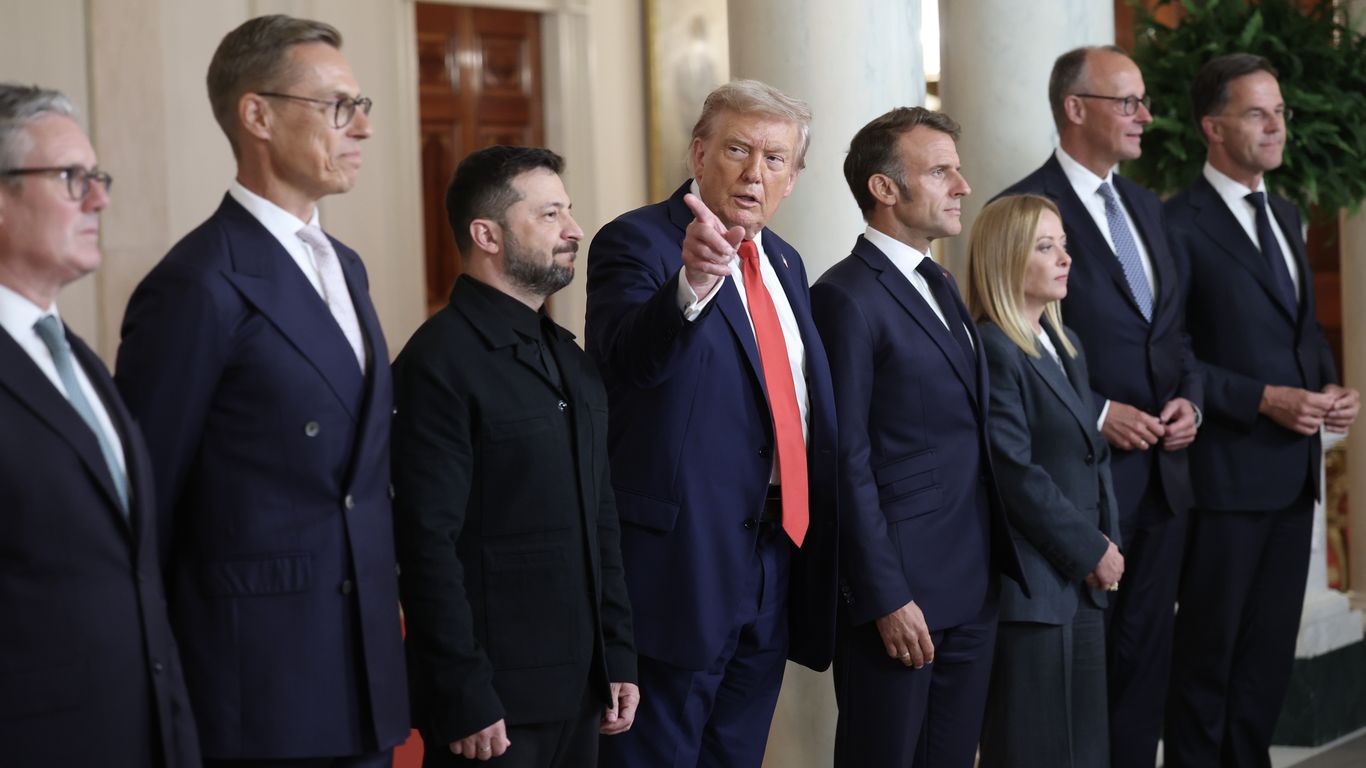Trump Nominee Withdrawn Over Offensive Text Messages Impacting Office of Special Counsel

Introduction
President Donald Trump's nominee to lead a federal watchdog agency, Paul Ingrassia, has withdrawn his nomination amid controversy over offensive text messages. The decision followed reports revealing Ingrassia's remarks, which included derogatory comments about Martin Luther King Jr. Day and references to having a "Nazi streak." These revelations sparked widespread criticism, leading to a withdrawal of support from key Republican senators.
Key Details
The text messages, reported by Politico, were seen as disqualifying by many lawmakers. Ingrassia's lawyer suggested the messages could have been manipulated or lacked context, but this did not stem the backlash. The withdrawal occurred just before a scheduled Senate confirmation hearing, highlighting the significant political pressure Ingrassia faced.
Impact
The withdrawal leaves the Office of Special Counsel without a confirmed leader, creating uncertainty about its future. The agency plays a crucial role in protecting whistleblowers and enforcing the Hatch Act, which prohibits government workers from engaging in partisan activities.
About the People Mentioned
Donald Trump
Donald John Trump, born June 14, 1946, in Queens, New York, is an American businessman, media personality, and politician. He graduated from the University of Pennsylvania’s Wharton School in 1968 with a degree in economics. In 1971, he took over his family’s real estate business, renaming it the Trump Organization, through which he expanded into building and managing skyscrapers, hotels, casinos, and golf courses. Trump gained widespread fame as the host of the reality TV show *The Apprentice* from 2004 to 2015, which helped establish his public persona as a successful entrepreneur. Trump entered politics as a Republican and was elected the 45th president of the United States, serving from 2017 to 2021. His presidency was marked by significant policy actions including tax cuts, deregulation, the appointment of three Supreme Court justices, renegotiation of trade agreements (notably replacing NAFTA with the USMCA), and a focus on immigration control including border wall expansion. He withdrew the U.S. from international agreements such as the Paris Climate Accord and the Iran nuclear deal, and engaged in a trade war with China. His administration’s response to the COVID-19 pandemic was criticized for downplaying the virus’s severity. Trump was impeached twice by the House of Representatives—first in 2019 for abuse of power and obstruction, and again in 2021 for incitement of insurrection—but was acquitted by the Senate both times. After losing the 2020 election to Joe Biden, Trump challenged the results, culminating in the January 6, 2021, Capitol riot. He remains a central figure in American politics, having won the 2024 presidential election and returned as the 47th president in 2025, continuing to promote policies aimed at economic growth, border security, and military strength[1][2][3][4].
Paul Ingrassia
**Paul Ingrassia (lawyer, b. circa 1990s)** is an American attorney, political commentator, and government official serving as Acting General Counsel of the U.S. General Services Administration (GSA).[2][5] He earned a BA with honors in mathematics and economics from Fordham University, followed by a Juris Doctor from Cornell Law School in 2022, where he served as senior online editor of the *Cornell Journal of Law and Public Policy* and received multiple CALI Excellence Awards.[2][3] Ingrassia's early career blended legal work and conservative media. While in law school, he wrote for outlets like *The Daily Caller*, *National Review*, *Human Events*, and *American Greatness*, and co-hosted the podcast *Right on Point* (2018–2020) with his sister Olivia, promoting ideas from thinkers like William F. Buckley Jr. and Russell Kirk.[2][3] Post-graduation, he worked for the National Constitutional Law Union—a group positioning itself against the ACLU—and at Joseph D. McBride's firm, assisting clients including January 6 Capitol attack defendants and the Tate brothers amid Romanian sex trafficking allegations.[2][3] Admitted to the New York bar in July 2024, his Substack gained notice when President Donald Trump cited it, including a false claim about Nikki Haley's presidential eligibility in January 2024.[2] In 2025, Trump nominated Ingrassia as Special Counsel to lead the U.S. Office of Special Counsel, tasked with whistleblower protection and civil service enforcement, but withdrew it in October amid backlash over leaked texts with alleged racist and pro-Nazi remarks reported by *Politico*.[2][3] The following month, he joined GSA as deputy general counsel, advancing to acting general counsel by December 2025—a role he holds as of early 2026.[2][5] In September 2025, a lawsuit by former FBI officials accused him, on the Trump transition team, of assessing candidates' loyalty to Trump.[3] Previously a Claremont Institute fellow and Trump White House intern, Ingrassia remains a New York Young Republican active in conservative circles.[2] *(Note: A separate Paul Ingrassia, the Pulitzer-winning journalist who died in 2019, is unrelated.)[1][4] (298 words)*
Martin Luther King Jr.
Martin Luther King Jr. (born Michael King Jr., January 15, 1929, Atlanta, Georgia; died April 4, 1968, Memphis, Tennessee) was an American Baptist minister and civil rights leader who spearheaded the U.S. civil rights movement from 1955 until his assassination.[1][2][3] Born to Baptist minister Michael Luther King Sr. and schoolteacher Alberta King, he earned a Ph.D. in systematic theology from Boston University in 1955 after studies at Morehouse College and Crozer Theological Seminary.[1][2] King rose to prominence leading the 1955-1956 Montgomery Bus Boycott, sparked by Rosa Parks' arrest, which mobilized the Black community against segregated public transit and culminated in a U.S. Supreme Court ruling declaring bus segregation unconstitutional.[1][2][5] In 1957, he became the first president of the Southern Christian Leadership Conference (SCLC), an organization promoting nonviolent resistance inspired by Mahatma Gandhi and Christian principles to combat Jim Crow laws, voter suppression, and racial discrimination.[2][4][6] His key achievements include organizing the 1963 Birmingham campaign, which exposed police brutality and produced his seminal "Letter from Birmingham Jail"; the March on Washington, where he delivered the iconic "I Have a Dream" speech to 250,000 people, pressuring passage of the 1964 Civil Rights Act; and the 1965 Selma-to-Montgomery marches, leading to the Voting Rights Act that authorized federal oversight of voter registration and banned literacy tests.[1][3][4][5][7] King received the Nobel Peace Prize in 1964 at age 35, the youngest recipient at the time, for advancing racial equality through nonviolence.[2][3][4] He faced arrests (nearly 30 times), FBI surveillance under COINTELPRO, and bombings, yet expanded his advocacy to poverty and opposition to the Vietnam War.[2][5][6] King was assassinated in Memphis while supporting a sanitation workers' strike.[2][5] His legacy endures in ongoing fights against racial injustice, with Martin Luther King Jr. Day a federal holiday since 1986 symbolizing nonviolent activism's relevance today.[2][3]
About the Organizations Mentioned
Office of Special Counsel
The United States Office of Special Counsel (OSC) is an independent federal agency established on January 1, 1979, with a mission to protect the integrity of the federal workforce and government operations. Originally part of the Merit Systems Protection Board (MSPB), the OSC became a fully independent agency in 1989 following the passage of the Whistleblower Protection Act (WPA), which strengthened its authority to safeguard federal employees from retaliation for reporting wrongdoing. The OSC’s core responsibilities include investigating and prosecuting prohibited personnel practices—such as reprisal for whistleblowing—and enforcing the Hatch Act, which restricts partisan political activity by government employees. It also enforces the Uniformed Services Employment and Reemployment Rights Act (USERRA), ensuring that service members are protected from employment discrimination due to their military service. The agency provides a secure channel for federal employees to disclose violations of law, gross mismanagement, waste of funds, abuse of authority, or threats to public health and safety. Over the years, the OSC has played a pivotal role in promoting transparency and accountability in government. Notable achievements include the recognition of whistleblowers who have exposed critical health and safety concerns, such as those in the mining industry, and the enforcement of rules that prevent political corruption and protect employee rights. The OSC’s annual reports and open government initiatives further demonstrate its commitment to transparency and public engagement. Currently led by a special counsel nominated by the president and confirmed by the Senate, the OSC operates with a budget that accounts for less than 0.1% of total federal spending. Its work is essential for maintaining trust in government institutions and ensuring that federal employees can report misconduct without fear of retaliation. For those interested in business and technology, the OSC’s efforts underscore the importance of ethical governance and the protection of whistleblowers in both public and private sectors.
Politico
## Overview Politico is a leading political journalism organization specializing in coverage of politics, policy, and the personalities shaping these arenas in the United States and globally[1]. Based in Arlington, Virginia, Politico delivers news and analysis through a variety of platforms, including a daily newspaper, website, newsletters, podcasts, and digital TV[2][3]. The organization is recognized for its rapid news reporting, in-depth policy analysis, and its influence in political and business circles. ## History Founded in 2007, Politico emerged as a disruptor in political journalism, capitalizing on digital media’s rise to challenge traditional outlets[1][3]. Its founders, including former Washington Post journalists, aimed to provide real-time, insider-focused political coverage. In 2021, Politico was acquired by Axel Springer SE, a major German media conglomerate, marking a significant expansion of its international footprint[2]. ## Key Achievements Politico is best known for breaking major political stories, setting the agenda in Washington, D.C., and beyond. It has built a reputation for scoops on presidential elections, congressional maneuvering, and policy debates. The launch of Politico Pro in 2011 further solidified its niche, offering subscription-based, policy-specific intelligence for professionals in healthcare, technology, and energy sectors[5][6]. This platform is lauded for its nonpartisan, fact-based reporting tailored to policy experts and businesses[5][6]. ## Current Status Today, Politico operates as a global news and information company with offices in Washington, D.C., New York, Brussels, and major U.S. state capitals, reflecting its ambitious expansion[4]. With over 1,000 employees and annual revenues exceeding $245 million, it remains a major player in digital and traditional political media[3]. Politico’s content is distributed across multiple platforms, ensuring wide reach among policymakers, business leaders, and engaged citizens. ## Notable Aspects Polit













